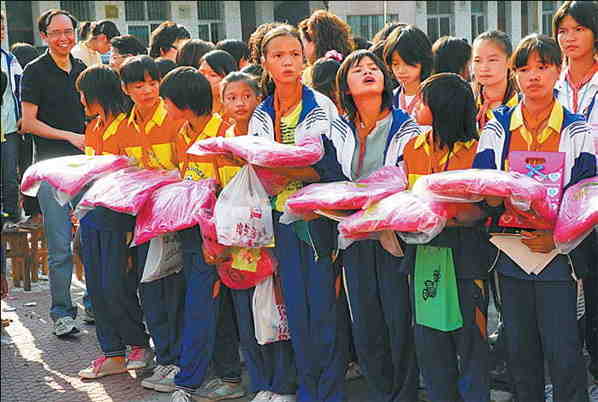Human rights and civil society's role in China
Updated: 2007-11-23 07:36
Nobody can become an expert on UN human rights treaties in a week. But a seven-day workshop held in Geneva, Switzerland, last month could prompt civil society to play a more active part in China to honor the treaties' principles. That the Chinese government is serious to get civil society more involved is evident from the memorandum of understanding (MoU) the Foreign Ministry signed with the UN High Commissioner for Human Rights (UNHCHR) in 2005. The workshop was, in fact, a part of the MoU.
|
|
During the past decade, scholars and NGOs have become more involved in drafting laws, says Liu Hainian, a council member of China Society for Human Rights Studies (CSHRS) And much has been done to apply the core principles of major international human rights treaties to China's legislation.
"But there is still much room for civil society to promote human rights and socialist democracy more actively," says Liu, who is also a senior research fellow with the law institute of the Chinese Academy of Social Sciences.
The new Human Rights Council will hold universal reviews of the state parties every four years and, as a council member, the progress in China will be among the first to be reviewed. That's why, Liu says, the UN workshop was "timely".
The Geneva workshop was the first project under the MoU, says Dong Yunhu, vice-president and secretary-general of CSHRS, the country's leading NGO that specializes in research and disseminates knowledge about human rights. Sponsored by the Office of the UNHCHR, 23 social workers, lawyers and advocates from eight NGOs in China, including Dong's, attended the workshop.
China has ratified five of the seven major international human rights treaties. And although some civil society members contributed to China's report on the implementation of these treaties as required, the UN human rights mechanism expects greater and more extensive public involvement.
The committee, of independent experts, on the International Covenant of Economic, Social and Cultural Rights in 2005 has reviewed China's initial report on the treaty's implementation. It has requested China to provide "detailed information on the public consultation process in the preparation of the report", complete with the list "of all civic organizations and NGOs consulted".
The committee's recommendation to the Chinese government says: "Public consultation is a requirement in the reporting process." The objective of the consultation "is to inform the general public and to generate interest and debate on the steps the state party has undertaken in fulfilling its treaty obligations under the covenant".
Hence the necessity of civil society's capacity building in China, says Dong, who is glad that the workshop was finally held.
The participants attended lectures on core principles of the seven major international human rights treaties, UN mechanisms to oversee their implementation, procedures of reporting to the treaty bodies, and civil society's role in the preparation of country reports. They observed the proceedings of the Human Rights Council in session and attended a meeting of the Committee on the Convention of the Rights of the Child reviewing Venezuela's second report on implementation of the treaty.
The Chinese participants embraced the notion that reporting to the UN human rights treaty bodies is not only an obligation of the state party, but it also means maintaining the ongoing monitoring of the implementation so every citizen is benefited by the treaties.
|
|
|
||
|
||
|
|
|
|


